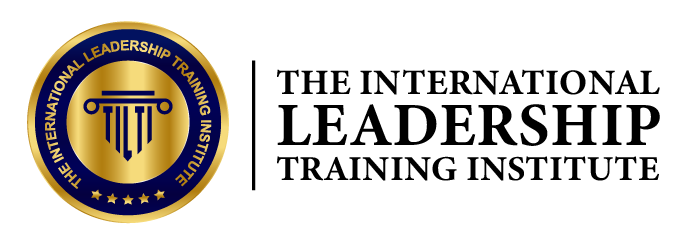Introduction
PGCE (Post Graduate Certificate in Education) is designed to cultivate theoretical and practical teaching ensuring that new teachers are well-equipped to enter their profession and contribute effectively to students’ learning and development. The curriculum covers essential teaching skills, educational theory, subject-specific training, and practical experience.
Course Outcome of PGCE
Upon completion of the course, participants will achieve the following learning outcomes:
- Understand Educational Foundations
- Apply Learning Theories and Teaching Methodologies
- Proficiency in Assessment and Inclusive Education
- Implement Effective Assessment Strategies
- Utilize Diverse Assessment Methods
- Create an Inclusive Learning Environment
These outcomes will provide educators with the essential knowledge, skills, and attitudes needed to succeed in their roles and make a positive impact on participants’ learning and development in the field of teaching.
Program Structure
The PGCE program will be organized as follows:
- Core Courses: The program will consist of a set of core courses that cover the fundamental topics in [specific field or discipline]. These courses will provide students with a strong theoretical foundation.
- Elective Courses: Students will have the opportunity to choose from a selection of elective courses based on their interests and career goals. These courses will allow for specialization within [specific field or discipline].
- Practical Training: To ensure that students acquire practical skills, the program will include hands-on training, workshops, and real-world projects.
- Capstone Project: Students will complete a capstone project, applying their knowledge and skills to solve a real-world problem or conduct research in [specific field or discipline].
- Modes of Delivery: Hybrid (Online and on Campus)
- Language of Delivery: English
- Credit Hours: 60 Credit
- Duration: 6 Months
Program Delivery
The program will be delivered through a combination of the following methods:
- Lectures: Traditional classroom lectures delivered by experienced faculty members.
- Online Learning: Some courses and materials will be accessible through an online platform to provide flexibility to students.
- Workshops and Labs: Practical sessions, workshops, and laboratory work to develop hands-on skills.
- Guest Lectures: Inviting industry experts and professionals to provide insights and practical knowledge.
- Group Discussions: Encouraging peer-to-peer learning and critical thinking through group discussions.
- Individual Advising: Each student will be assigned an academic advisor to support their progress.
Assessment
The PGCE program covers three units. Students should submit an Article of 2000 words with each unit. A clear and transparent grading system will be established, and continuous feedback will be provided to students for their learning assessments and evaluation.
Admission Criteria
Prospective students must meet the following admission criteria:
- A bachelor’s degree in a related field or equivalent qualifications.
- A strong academic record.
- Letters of recommendation.
- A statement of purpose outlining their motivation and goals for the program.
- An interview may be conducted to assess their suitability for the program.
PGCE Program Covers Three Units
Unit 1: Covers the History and the Philosophy of Education
This unit delves into the foundation of education and pedagogical theories. It explores how education has evolved and how it has helped learners understand the significance of gaining knowledge and teaching others. The introduction to educational philosophy, history, and sociology will be integral to this unit. The contribution of key thinkers and philosophers in the field of education will be discussed. It also highlights various pedagogical approaches such as behaviorism, constructivism, and social-cultural theories. It strives to explore the current trends and issues in education towards shaping the teaching methodologies, policies on teaching, and lesson planning. It will help the learners in research work by introducing research methodology in the educational context.
Unit 2: Covers the Assessment, Inclusive Education, & Classroom Management
This unit covers assessment and evaluation in education. Understanding and the principles of assessment and evaluation in education. It delves into developing the skills to design assessments, grade the student’s work, and provide feedback. Additionally, this unit explores the inclusivity and diversity of education, by providing equal opportunities to diverse learners including those with disabilities/ other abilities. This unit unfolds the modern and contextual techniques of classroom management and the behavior of the students. It urges the participants to formalize strategies for managing the behavior of the learner and promoting their learning environment in the classroom.
Unit 3: Professional Development, Practicum, & Capstone Project
This unit is designed to facilitate the professional development of educators in education ethics. It covers how to keep ethical issues and professional responsibilities in education. It provides reflective practice skills and engagements in ongoing professional development for the teachers. Additionally, this unit focuses on teaching practicum: how to supervise teaching practices. It covers the teaching techniques to learn how to provide opportunities for observations, feedback, and reflections on teaching practices. This unit includes writing the capstone Project/ Portfolio demonstrating knowledge and skills acquired throughout the program and presenting findings to peers, faculty, and other stakeholders.
Ultimately, we aim to deliver superior teaching quality that satisfies both our participants/educators and students to the fullest extent.
Conclusion
Post Graduate Certificate in Education serves as a significant stepping stone for the learners to become effective educators by blending theoretical knowledge with their practical experience. This program ensures that future teachers are well-equipped to face the diverse challenges of the classroom environment.
Fee
PKR 500,000/- Tax included
Applicants can pay the full amount in three equal installments.






